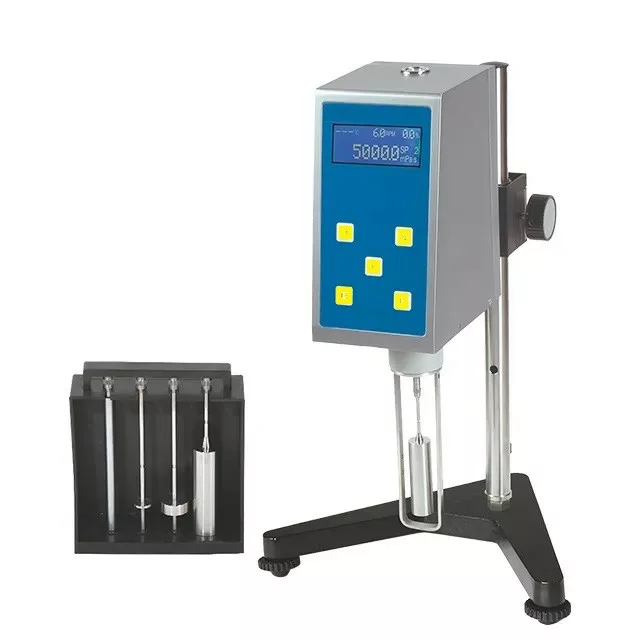Discover the Precision and Versatility of Rotational Viscometer KRV/A/B1
In industries where fluid dynamics play a crucial role, understanding the viscosity of materials is essential for maintaining product quality and performance. Rotational Viscometer KRV/A/B1 are powerful tools that provide accurate measurements of fluid viscosity, making them indispensable in laboratories and production environments. Whether you’re in the food, pharmaceutical, or chemical industry, rotational viscometers offer precise insights into the flow behavior of liquids. Explore the key features, benefits, and diverse applications of rotational viscometers in this comprehensive guide.
What is a Rotational Viscometer?
A rotational viscometer is an analytical instrument used to measure the viscosity of a fluid by determining the resistance to flow under specific conditions. The device operates by rotating a spindle or bob within a fluid sample and measuring the torque required to maintain a constant rotational speed. This measurement provides valuable data about the fluid’s viscosity and flow properties, making rotational viscometers essential tools for quality control and product development.
Key Features
- High Accuracy and Sensitivity: Rotational viscometers deliver precise and consistent measurements, ensuring reliable data for analysis and quality control.
- Wide Viscosity Range: Capable of measuring a broad range of viscosities, from thin liquids like water to thick substances like syrups and gels.
- Multiple Spindle Options: Equipped with interchangeable spindles and bobs, allowing for versatility in measuring different fluid types and viscosities.
- Temperature Control: Many rotational viscometers feature integrated temperature control to maintain specific test conditions, enhancing measurement accuracy.
- User-Friendly Interface: Modern viscometers come with digital displays and intuitive software, simplifying operation and data interpretation.
- Data Logging and Connectivity: Equipped with data storage capabilities and connectivity options for seamless integration with laboratory information management systems (LIMS) and computers.
Benefits of Using Rotational Viscometers
- Enhanced Product Quality: Accurate viscosity measurements ensure that products meet specifications and maintain consistent quality, crucial for customer satisfaction.
- Versatile Applications: Suitable for various industries, including food and beverage, pharmaceuticals, cosmetics, and chemicals.
- Rapid and Efficient Analysis: Enables quick and efficient measurement of fluid viscosity, improving productivity and streamlining quality control processes.
- Non-Destructive Testing: Provides precise measurements without altering or destroying the sample, preserving its integrity for further analysis.
- Cost-Effective Solutions: Reduces the need for manual measurements and potential errors, offering cost-effective solutions for viscosity analysis.
Applications of Rotational Viscometers
- Food and Beverage: Used to measure the viscosity of products such as sauces, syrups, and beverages, ensuring consistent texture and quality.
- Pharmaceuticals: Essential for analyzing the viscosity of liquid medications, gels, and creams, ensuring proper formulation and efficacy.
- Cosmetics: Measures the viscosity of lotions, creams, and shampoos, ensuring product consistency and performance.
- Chemicals and Petrochemicals: Analyzes the viscosity of oils, lubricants, and other chemical products, crucial for quality control and compliance.
- Paints and Coatings: Ensures the proper viscosity of paints and coatings for optimal application and finish.
- Research and Development: Supports the development of new materials and formulations by providing precise data on fluid properties.
Choosing the Right Rotational Viscometer
When selecting a rotational viscometer, consider factors such as measurement range, accuracy, temperature control, and specific application requirements. Reviewing product specifications and consulting with manufacturers can help you choose the best viscometer to meet your needs.
Conclusion
Rotational viscometers are essential tools for accurate and efficient viscosity measurement across various industries. Their advanced features, precision, and versatility make them indispensable for professionals in food and beverage, pharmaceuticals, cosmetics, and more. Investing in a rotational viscometer ensures high-quality analytical results, enhancing productivity and supporting informed decision-making.
For expert advice on selecting the best rotational viscometer for your needs, contact our specialists today.





Reviews
There are no reviews yet.